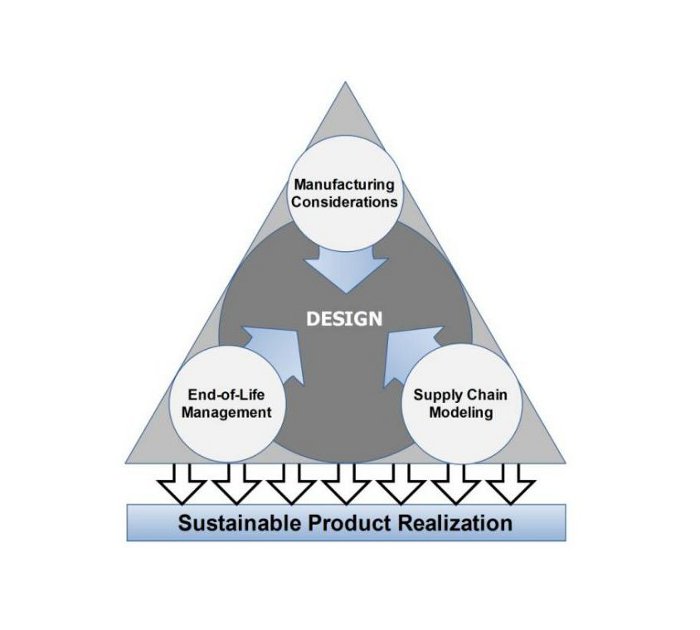Abstract:  Product design is one of the most important sectors influencing global sustainability, as almost all the products consumed by people are outputs of the product development process. In particular, early design decisions can have a very significant impact on sustainability. These decisions not only relate to material and manufacturing choices but have a far-reaching effect on the product’s entire life cycle, including transportation, distribution, and end-of-life logistics. However, key challenges have to be overcome to enable eco-design methods to be applicable in early design stages. Lack of information models, semantic interoperability, methods to influence eco-design thinking in early stages, measurement science and uncertainty models in eco-decisions, and ability to balance business decisions and eco-design methodology are serious impediments to realizing sustainableproducts and services. Therefore, integrating downstream life cycle data intoeco-design tools is essential to achieving true sustainable product development. Our review gives an overview of related research and positionsearly eco-design tools and decision support as a key strategy for the future. By merging sustainable thinking into traditional design methods, this review provides a framework for ongoing research, as well as encourages research collaborations among the various communities interested in sustainable product realization.


